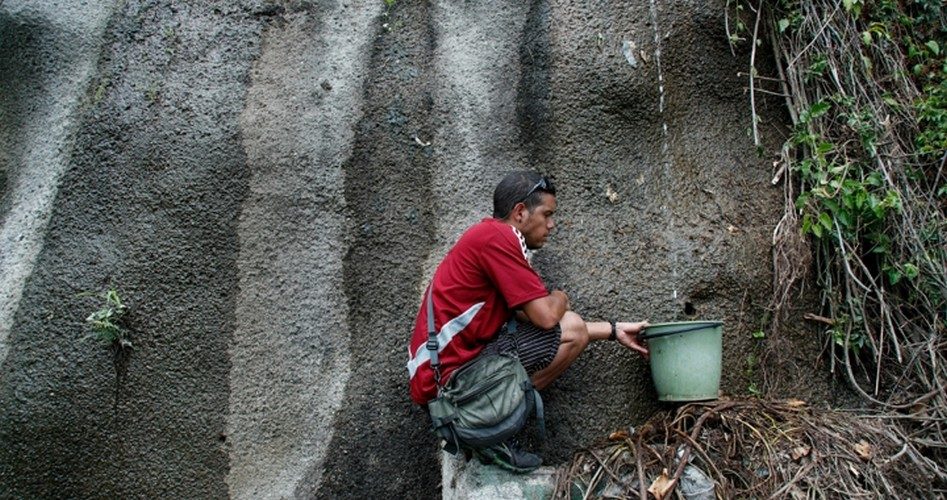
Most of Venezuela is without power, and what little is available is unreliable and intermittent. It started last Thursday with the failure of the San Geronimo B power station that transmits electric power from the country’s enormous Guri hydroelectric power plant. Guri supplies 80 percent of the country’s power, while a smaller substation, used for backup, has been able to provide only a small percentage of what was lost on Thursday.
The country’s dictator, Marxist Nicolás Maduro, has blamed the Trump administration for the outage, calling it sabotage, the result of an “imperialist electromagnetic attack.” The New York Times reported the real cause: An uncontrolled grass fire beneath the power station burned a major trunk line, which caused one of its 10 turbines to fail, and when workers tried to restart it, others failed. After four failed attempts, workers were told to take Monday off, leaving Venezuela in the dark for the foreseeable future.
A supervisor in charge of the facility was told by his managers that the plant’s critical infrastructure was heavily damaged following an explosion at a nearby secondary power station during the fourth attempt to restart the turbines. Said Luis Aguilar, a Chicago-based expert on the Venezuelan power industry, “Every time they attempt to restart, they fail, and the disruption breaks something else in the system, destabilizing the grid yet further.”
The Times explained the breakdown in layman’s terms: “Restarting the turbines requires skilled operators who can synchronize the speed of rotation on as many as nine of Guri’s operational turbines.”
The Times explained further that the real problem is socialism that has destroyed the normal operations of a healthy economy: “Experts said the most experienced operators had long left the company because of meager wages and an atmosphere of paranoia fed by Mr. Maduro’s ever-present secret police.”
This is what socialism looks like. In Venezuela,
17 patients suffering from end-stage kidney failure have already died without their dialysis;
More than 80 infants receiving inadequate natal care have died because hospital backup generators have run out of fuel;
At least 40 civilians have been arrested for looting and were hauled away in police vans;
Of the 1,800 gas stations in the country, only 100 are operating, resulting in gas lines that extend around the block;
Internet service is only available to about four percent of the population, as a result of most of the country’s internet service going offline;
Food is rotting in refrigerators, forcing some grocery store managers to give it away for free before it spoils completely;
Homes no longer have water because the pumping stations have been forced to shut down due to lack of fuel; and
Citizens are being forced to walk to work as taxis are no longer operational and the subway system is down.
All of this is costing what’s left of the country’s economy (already down by half since Maduro succeeded Chávez in 2013) an estimated $400 million a day.
Venezuela’s citizens are suffering from end-stage socialism, which has caused the breakdown of essential services, destroyed the operations of the free market, forced skilled workers to leave the country, and resulted in lack of maintenance in the power grid because the government has run out of money.
There may be brighter days ahead. Maduro’s attempts to blame his troubles on President Trump are increasingly falling on deaf ears. On Sunday, a rally called in support of his regime was attended by only a few hundred people. Juan Guaidó, on the other hand, continues his quest to galvanize support for free elections once Maduro is gone.
Photo: AP Images
An Ivy League graduate and former investment advisor, Bob is a regular contributor to The New American, writing primarily on economics and politics. He can be reached at [email protected].
Related articles:



